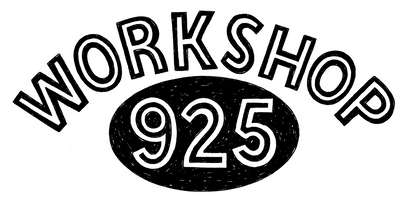
Thinking of Starting a Jewellery Business?
Working for yourself can prove both empowering and rewarding. However, it isn’t something you should enter into lightly and the more you can prepare yourself and get things right at the outset, the higher your chances of success. You may have heard of the saying ‘fail to plan, plan to fail’.
Firstly, and most importantly, ask yourself ‘is self-employment right for me?’ and in doing so, consider the following pros and cons:
Pros:
- You may be able to create your ‘perfect job’.
- You aren’t answerable to anyone (apart from your customers, that is!).
- You can choose who you work for, when and how much you work.
- The harder you work, the more you could earn.
Cons:
- It’s a financial gamble – no regular fixed sum pay day and you may lose any money you invest in your business.
- No holiday or sick pay entitlement or employer pension contributions.
- You may work harder for less pay, certainly in the early stages of your business.
- Who covers for you when you are on holiday?
- It rarely proves to be 9-5.
- It can be a lonely existence!
If you are ready to take the plunge into ‘self-employment waters’, consideration then needs to be given to the following:
- What business name should I use?
- What business structure should I create for my business venture?
- How do I, and what do I need to start my business?
- What are my accounting, tax and legal obligations?
- How do I find/attract and retain customers?
- How do I grow my business?
Naming Your Business
Thinking up a name for your business is the first step towards creating your brand. It’s important that you get it right as it is how your business will be known, promoted, talked about, and searched for. It also needs to remain appropriate as you grow. Ideally, certainly for smaller start-up businesses, the business name should be timeless and include a reference to what it does/the nature of trade.
You will have to be mindful that there are also business naming rules that prevent the use of certain sensitive words that imply connection with the Crown, government, or local authorities or that may break the law or cause offence.
You should also avoid using business names that have already been trademarked or that generally could be suggested as being similar to another already established business, as you could be legally forced to change your name, possibly necessitating an expensive rebrand. It is then always a good idea to make a short list of preferred names and then check that each is available before making your final decision.
You can check which business names have already been taken or which are very similar to yours (by already set up and established companies) for no charge at Companies House.
Also, if you need your business to have an online presence, check the availability of a domain name that matches your business name. A Google ‘check domain name availability’ search will help you with that and you might want to consider securing both dot com and dot co.uk versions of your chosen name.
So, already a lot to think about, over and above that initial ‘should I?’, ‘shouldn’t I?’ conundrum. Don’t be afraid to share and discuss your plans, thoughts and concerns with others, e.g., family, friends and particularly other business owners. Some Accountants offer a free and no obligation meeting to discuss your business plans so take advantage of that. There are also several Government backed schemes and initiatives that will offer help and advice too.
If it really is a dream of yours to run your own business then do all you can to overcome any fears and get over any hurdles, that may get in the way of that dream becoming a reality.
Glen is Workshop 925’s accountant through Accountancy Matters
Glen is approachable and really outlines what steps we need to take to process our accounts efficiently and understands our requirements. Not only that, his rates are affordable for and we are confident our accounts are maintained at an excellent level.

Leave a comment